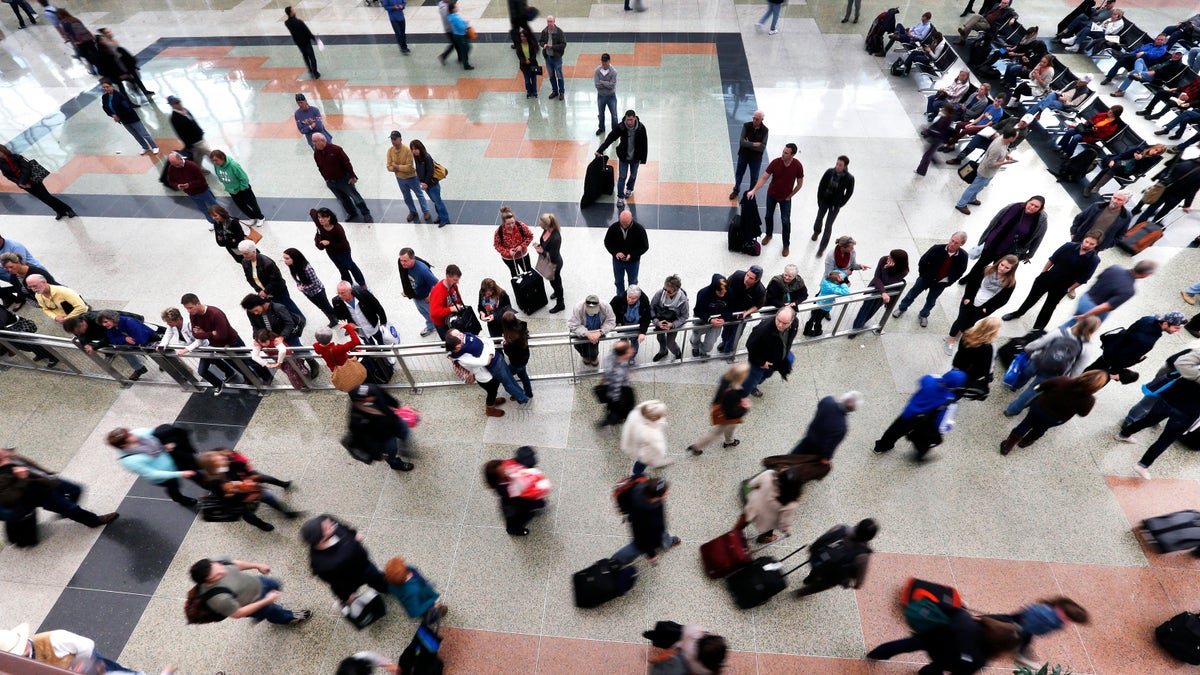
FILE -- On the busiest travel day of the year, family and friends watch for arrivals of loved ones, at Denver International Airport. (AP Photo/Brennan Linsley)
I have a friend who will have an empty seat at his Thanksgiving table this year. That seat belonged to his father, who died recently.
A few days ago, a doctor told another friend that his dad probably wouldn't live to see Thanksgiving next year.
I have yet another friend who was in a car accident and is in the hospital with serious injuries right now. He will be having Thanksgiving there.
And I’ve spent a lot of time visiting nursing facilities and met so many people who spend holidays in bed alone – even though their adult children live in the same town.
While so many of us will be eating together, watching football or just having a quiet lunch with our immediate family members, so many others will be suffocating in sorrow.
It seems like the most unnatural thing in the world for these people to be thankful on a day that only reminds them of their loss. But thankfulness might be the most powerful tool they have in their fight against despair.
In the book “The Upward Spiral,” neuroscience researcher Alex Korb examines research that shows how gratitude, in particular, boosts dopamine and serotonin in the brain in the same way antidepressants do.
Korb concludes that gratitude is one of the most critical things you can do to increase the degree of happiness you experience. And if you know your Bible, that ought to sound familiar.
Some 2,000 years ago, a man named Paul wrote a letter to a group of people who were living through severe religious persecution. He said: “Rejoice always, pray without ceasing, give thanks in all circumstances; for this is the will of God in Christ Jesus for you” (1 Thessalonians 5:16-18).
Notice that he does not say “give thanks for all circumstances.” He says “give thanks in” them.
It is the ultimate act of faith to believe that “all things” – even the awful things that may have wrecked our year — somehow “work together for good to those who love God, to those who are the called according to His purpose” (Romans 8:28).
Only with that kind of faith can we believe that God is the author of our stories – that there are no accidental twists, no insignificant details, no wasted moments. For that – for the goodness of God in the midst of the trials — we can be thankful.
Joshua Rogers is thankful for the invaluable suggestions made by his mother, Paula J. Jones, in writing this opinion piece.








































